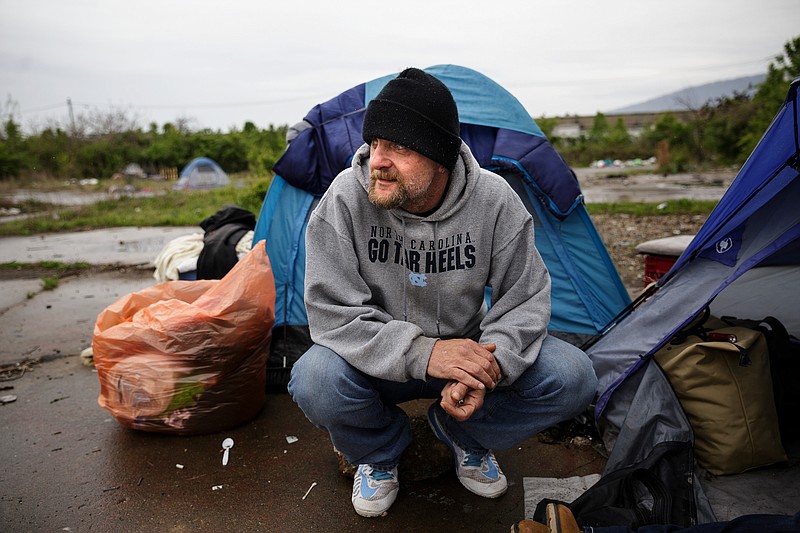Leaders of the Chattanooga Interagency Council on Homelessness got feedback from the rest of the council's members during the unveiling of its draft Homelessness Action Plan on Tuesday morning.
The interagency council, formed in March, drafted the comprehensive plan to combat the city's homelessness. The council is a partnership between the city, several foundations that support homeless programs, and the area's medical and mental health community.
During Tuesday's meeting, members broke into four smaller groups to discuss the four main steps the plan calls for:
» Identifying people who are homeless.
» Creating emergency and temporary shelters for immediate needs.
» Placing people into permanent housing.
» Dedicating resources for helping people stay in housing.
The plan calls for an initial investment of $10 million in the first four years, but much of that money is already in place and being used for homeless services. It's not known how much new money might be needed.
Shelters that already exist often have requirements, such as sobriety checks or religious lessons, the plan states. This is why it suggests using hotel vouchers for temporary shelter and, in the future, build a 250-bed emergency shelter at a suggested operating cost of about $5.6 million a year.
But some leaders noted it will be challenging getting hotel owners on board.
In the past, the Maclellan Foundation gave $68,000 to partially fund a housing navigator position at the Chattanooga Housing Authority.
The navigator's job was to connect people with Housing Choice vouchers to landlords willing to lease to them. Before the navigator, fewer than half the people with vouchers found housing. (The 2018 action plan calls for the addition of 25 outreach workers and housing navigators.)
Similarly, Chattanooga Mayor Andy Berke set out in 2014 to end veteran homelessness. The biggest barrier, he said at the time, was finding landlords willing to rent to them.
"We need to get together in a group to kind of debrief what we learned from past programs," Tyler Yount, the mayor's director of special projects, said of the group he moderated. "And better define the scope of how we want to build that program."
Yount said his group also discussed the possibility of purchasing a hotel rather than building one.
Another main point Yount's group discussed was "low-barrier" shelters - temporary shelters that don't have the extra requirements other shelters might have.
"We wanted to better the scope of what 'low-barrier' is," he said.
They'll have to define who would be eligible to enter the shelter, determine what services it provides and how it would coexist with other service providers.
"I think there's a lot of conversation that we'll have to start out with, with starting to find the mission, vision and the scope of the shelter before we talk about the total cost," Yount said.
He said their next step is to form two brainstorming groups: one for the hotel voucher program and another for the shelter.
For the group discussing permanent housing placement, Donna Maddox, co-chairwoman of the interagency council, said one of their concerns was with rural homelessness.
The group suggested placing housing navigators in specific locations, Maddox said.
Additionally, the action plan calls for intensive case management and service coordination. But instead of hiring more case managers, Maddox said, "let's identify what already exists in the community and talk to those providers and see what would it take to expand existing programs."
Contact staff writer Rosana Hughes at rhughes@timesfreepress.com or 423-757-6327 with tips or story ideas. Follow her on Twitter @HughesRosana.
